Roadmap to the Apocalypse: A Quaker Guide to the End of Our World
Are we living through apocalyptic times? If so, how can we navigate this time of turmoil and come out on the other end with a society more whole, more just, and more guided by love? Quakers may have (part of) the answer.
Quaker author and retired pastor, Doug Gwyn joins Jon Watts to explore how the “apocalyptic spirituality” of early Friends offers profound wisdom for navigating our own era of upheaval. From the nonviolent “Lamb’s War” of the 1650s to the direct action of the 1960s, and right up until today, he leads us to a vision of a grassroots spiritual and cultural revolution against alienation and injustice.
Subscribe so you don’t miss an episode!
World Quaker Day is on Sunday, October 5th, 2025, and this year’s theme is “Love your neighbor.” Friends World Committee for Consultation would like to invite you to take that message to heart and live it out in your own local community. Find helpful ideas for how to do that and free resources at fwcc.world/worldquakerday.
Leave a comment below to share your stories and thoughts!
Download the transcript and discussion questions.
Discussion Questions
- Doug reframes “apocalypse” not as fiery destruction, but as an “unveiling” or “unmasking” of reality, often prompted by crisis. Where do you feel the fabric of “normal” reality wearing thin right now, either personally or collectively? What deeper truths or uncomfortable realities are being unveiled for you in this current moment of unraveling? Is this unveiling frightening, clarifying, or something else entirely?
- James Naylor described the Lamb’s War as being against “spiritual wickedness… laws, customs, fashions, inventions… enmity against the Lamb.” This wasn’t just protesting out there, but transforming life from the inside out, creating alternative ways of being. If we were to identify the modern equivalents of these “spiritual wickednesses” embedded in our culture (think consumerism, individualism, systemic injustice, ecological harm, etc.), how might a modern, nonviolent “Lamb’s War” look? What “customs” or “fashions” (of thought or behavior) might we need to lovingly, yet firmly, challenge and replace? How might we do this work within our communities?
Transcript
Doug Gwyn
Apocalypse or Revelation has a transcendent, divine source and one literal translation of Apocalypsis would be an unveiling, an unmasking of what passes for reality according to our usual perception. So “apocalypse” is something that begins with an inward experience and then moves out into a transformed life and witness in words and actions and lifestyle that inevitably comes into some kind of conflict with the dominant powers of one’s time and place.
Jon Watts
Hi friends, I’m Jon Watts and today we’re continuing our extended off-season as our new producer gets settled into place for Season Three. We’ll have lots of announcements about that soon, but in the meantime you can expect us to keep showing up in your feed about once a month.
I’m really excited about today’s conversation with Doug Gwynn. Doug has had a prolific career as a Quaker author and pastor. He has published books on early Quakers, on modern Quakers, Quakers in the Bible, Quakers in Earth Care, and many more topics. Specifically, Doug’s book, “Apocalypse of the Word” has been highly influential for many Quakers in our understanding of who we are as friends and where we come from.
I was excited to talk with Doug because, of course, we are having our own moment of unraveling in the present day and I’m eager to know what we can learn today from the architects of this religious movement about how to navigate times of great upheaval. Given the pace of everything in the news, I’ve also reconnected with Doug last week just to get an update on his thinking about this moment that we find ourselves in. So without further ado, let’s get into my conversation with Doug Gwyn.
Jon Watts
It’s a little monastic.
Doug Gwyn
Yeah, yeah. It is, but that fits me all right. Yeah.
Jon Watts
Can I get a little tour here?
Doug Gwyn
Well, I think it’s about a little less than 500 square feet all together…
Jon Watts
I met up with Doug at his home during a recent trip to Indiana. Since retiring, he’s taken up residence in a small apartment, outfitted with a few musical instruments, his CD collection, and shelves and shelves of books. It suits Doug, who spent much of his life in Quaker ministry.
Doug Gwyn
Over the years, I’ve served as a Friends Pastor interwoven with periods of research on Quaker thought and history and writing some books and articles on that and teaching at Pendle Hill outside Philadelphia and Woodbrook Study Center outside Birmingham, England.
Jon Watts
Tell me a little bit about your story. How did you become a Quaker? How did you become a Quaker pastor? And what called you to do this work of researching and writing about friends?
Doug Gwyn
I grew up in a large pastoral meeting in Indianapolis, “First Friends Indianapolis”, which I believe was a thousand members in the 1950s when I was growing up. I had that background, although I had no inclinations to ministry at all. I was a zoology major at Indiana University when I received, completely out of nowhere, a distinct call to ministry all by myself in my dorm room one evening in September 1968. I just followed it. There were a lot of things happening in 1968. Martin Luther King’s assassination in early April followed by Robert Kennedy’s assassination in early June. The complete meltdown of the Democratic National Convention in Chicago that summer, the Tet Offensive in Vietnam at the beginning of the year.
I was not very politically minded, I have to admit. But those things were impacting me at a deep level. I think the King assassination most of all. But the precipitating factor, I have to admit, was that my high school girlfriend broke up with me in September. That really put me in a spin. I had this sort of implicit idea of where my life was going in zoology and marriage and family and that just blew up all of a sudden and it was one of those moments where God could get a person’s attention, you know. I was just sitting rather dejectedly alone in my dorm room on Friday evening, I think when everybody else was out raising Hell, and I guess wondering what my life was about at that point and very distinctly, I wouldn’t say I heard the words, but there were these words that I distinctly received, “Be a minister”. And I’d never experienced that kind of a divine communication before, which it seemed to be. And I realized that it sort of named some personality traits and gifts that I thought perhaps I already had, as well as called me onto a path of developing and exercising those gifts. And I just, I had a clarity from that point on that that’s where I needed to go.
I visited my pastor back at First Friends Indianapolis next time I got home, and he said, “I went to Union Seminary in New York, and he started telling me about great theologians that had taught there over the years. But mostly I heard, “New York”. New York sounded really interesting. And so two things: ministry and New York that had not been on my mind ever before suddenly had this kind of clarity.
So I began planning for seminary. I started there at Union in 71. A change of kingdom, as I sometimes like to say, from zoology to the divine.
Jon Watts
So, Doug went to Union Theological Seminary in Manhattan.
That really gave me no particular background in Quakerism. There weren’t any Quakers on the faculty and there weren’t any courses. It’s a mainstream liberal Protestant seminary. My sense of the ministry that I was called to was sort of implicitly pastoral ministry, which is the ministry that I had grown up knowing. When I finished at Union in ‘75, I started my first pastorate in Noblesville, Indiana in the mid-70s. before getting the itch to go on to graduate work.
Jon Watts
Doug went east again to get his PhD at Drew University in New Jersey, and that’s where he was drawn into studying Quakerism’s founder.
Doug Gwyn
And that’s when I started getting excited about George Fox and early friends.
Jon Watts
After the break, we check in with Doug to see how he is processing this current moment and what wisdom he draws from both the early Quakers and his own experiences of social upheaval. And if you stick around to the end, Doug picks up his guitar to share an original song with us.
Jon Watts
Hey friends, World Quaker Day is coming up on Sunday, October 5th, 2025. And this year’s theme is one that we could all use right now: “Love Your Neighbor”. It comes from Galatians 5:14, which says, “For the whole law can be summed up in this one command, love your neighbor as yourself”. The Friends World Committee for Consultation would like to invite you to take that message to heart and live it out in your own local community. That might look like showing up in solidarity with migrants or refugees. It could mean inviting folks who use your meeting house during the week to join you for a meeting for worship. Or maybe it’s just sharing a heartfelt and personal message about love during worship. You can find a bunch of helpful ideas and free resources at fwcc.world/worldquakerday/.
So, however you choose to take part, join Friends around the world this October 5th, and love your neighbor. Again, that’s fwcc.world/worldquakerday/ and now back to the show.
Jon Watts
So one of Doug’s most notable books is called “Apocalypse of the Word”. I’ve always known that a major part of the genesis of Quakerism was this feeling of apocalypticism in the 17th century, and I think it’s something that we can increasingly relate to today as it feels like the world we know is unraveling. So, I called Doug up last week, and asked if he could help us to understand the role that apocalypticism played in the development of Quakerism and how that might help us think about how to respond to our circumstances today.
Doug Gwyn
Yes, I think there are some parallels. Not exact, of course, but as Mark Twain says, “History doesn’t repeat itself, but it does rhyme.” And there are certain rhymes that I feel in the present moment from events in 1650s in England. First, I need to define what I mean by apocalyptic. I don’t mean the sort of dire, cataclysmic future events portrayed in those end of the world scenarios in super superhero movies. Although apocalyptic consciousness does seem to arise in times of social crisis and dire possible outcomes like the present crisis. Apocalypse, as I understand it, comes from the Greek root sense of the word “apocalypsis”, a revelation that comes to us from beyond our human reasoning, knowledge, information, speculation. It doesn’t come through your phone unfortunately. But Apocalypse or Revelation has a transcendent divine source and one literal translation of Apocalypse would be an unveiling, an unmasking of what passes for reality according to our usual perception.
So “apocalypse” is something that begins with an inward experience and then moves out into a transformed life and witness in words and actions and lifestyle that inevitably comes into some kind of conflict with the dominant powers of one’s time and place. This is how early friends read the book of Revelation and Paul’s letters out of their experience in England in the 1650s.
What really sparked the early Quaker movement in the north of England in the end of 1651 and across the North in 1652 was his message that Christ has come to teach his people himself and bring them off the world’s ways and religions. This was a second coming message, but unlike the expectations of some of Jesus coming on clouds out of the sky, Jesus was coming in clouds of people that were coming together to be taught by the light of Christ in their consciences and forming communities that would follow that teaching into new social patterns. Because they believed that the same light that they were finding in their consciences is in everyone, they were working quickly and energetically to draw as many people as they could into this new revelation and build really a new English society from the grassroots.
This brought them into a direct conflict with the established church and its enfranchised clergy. Early friends believed that this institutional and state-enforced religion basically alienated people from the light of Christ in their own consciences, and that that form of spiritual alienation was the root of all the social alienations that permeated society, social hierarchies, patriarchy, violence, unfair market practices, conspicuous consumption, and so on.
So they were beginning to form a kind of an alternative social order among themselves in the lives of their settled meetings and the networks that those meetings formed among themselves that were sharing communication and innovations as the light was revealing step by step along the way. So the prophetic edge of the early Quaker movement was not just what we often think of as prophetic as, know, sort of mouthing off against authority in all directions, but it came from a deeper, a deeper place that early Quaker leaders like Fox and James Naylor, Isaac Pennington and others taught people how to get down below their normal ways of thinking and feeling to that common source, the light in all people’s consciences.
So the politics of the Lamb’s War, I think were basically infrastructural grassroots. Unlike some other radicals around them, like the Fifth Monarchists who were vying for state power or even trying to overthrow the government for their own idea of the Kingdom of Heaven on Earth, Quakers didn’t have that much of an argument with the government. They were basically petitioning the government for toleration, for the space to just keep expanding this grassroots uprising from below. And they were growing exponentially in these early years. It was really scaring a lot of local establishments. I mean, the government was still supporting a national church, but they took up that argument on the local level, parish by parish, and trying to demystify, not just convince the government to turn loose with the church, but to demystify the church in the eyes and in the ears of local people because it has to happen from there and on.
Some of the statements by early friends are quite radical. James Naylor, in his tract, “The Lamb’s War”, which he wrote from prison in 1658, he says, “Their war (the followers of the Lamb) is not against creatures (humans), not with flesh and blood, but with spiritual wickedness, against spiritual wickedness exalted in the hearts of men and women, against the whole work and device of the God of this world, laws, customs, fashions, inventions, all this enmity against the Lamb and his followers. The Lamb has come to take the government to himself, that God may alone rule wholly in the hearts of men and man live wholly in the work of God.” That is just total. I don’t know any other Quaker put it in quite those terms. It’s a kind of a cultural revolution basically, but from below, not from above like the Chinese Cultural Revolution of the 1960s or this culture war that the Trump administration is now prosecuting in America.
But we can understand how language like this scared the government and authorities, religious and political, from local to national, and made it hard for them to trust that friends really were committed to nonviolent means of social change.
So the logic of the Lamb’s War is quite startling. You see, Charles I had been beheaded in 1649 at the end of his war with parliament, of civil war during the 1640s. Monarchy was the only thing, the only form of government that England had known, you know, forever. A movement like Early Friends and the Last War doesn’t just crop up any old time. It seems to require certain crisis conditions to take off; a situation like the unsettled situation of church and state in England following the 1640s Civil War and the beheading of Charles I. And something as radical as the Lamb’s War doesn’t spring forth fully formed out of nowhere. I’ve studied some of the movements from the 1640s that were precursors of the Quaker movement and I can see that early friends were integrating a lot of what what had come from the previous decade and some things earlier than that and certainly it’s the way they were reading the New Testament.
Jon Watts
One of the things, you know, when I talk to folks in my generation about the current state of the world and, you know, socioeconomic disparity impending and escalating climate change, political instability, it often feels like the world as we know it and as we inherited from our parents is falling apart in ways that feel
destabilizing and anxiety inducing. And it’s hard to have hope. It’s hard to make plans in the face of this feeling that the world is falling apart. And one thing that we look to when we explore the stories of early friends is this sense of bringing a vision to that moment. I don’t know if the early friends were saying this explicitly or if it was a sort of implicit part of their Lamb’s War, but it sort of feels like, well, if the world is falling apart, then we might as well take this opportunity to reimagine it. We have nothing left to lose can be a lament and it can be a rallying cry. Am I reading that right? I want to get your reaction to that.
Doug Gwyn
Yeah, yeah, I’m with you.
Jon Watts
So what do you see as the story of the early friends? are the pieces of it that we might examine as a possible roadmap to our current age? What can we learn about their stories of how to navigate our own turbulent times and come out on the other end with a vision for a more just and more peaceful and more faithful and more loving society.
Doug Gwyn
Well, I think there are certain things in our recent history that are bridges between early friends and our current crisis. The example of the movement for a new society that came out of the turbulence of the latter 1960s started with George Willoughby and George Lakey and some others that they brought in teaching a course on radical nonviolence and social change at Pendle Hill, but it made Pendle Hill a little too turbulent. So they left in 1970 and began to develop The Movement for a New Society, which was a combination of lots of nonviolent direct action on social justice and anti-war and environmental defense, but based in these life center communal households in West Philly. So you had that grounding in community and communities of discernment and action that extended out into the world. Again, just like the precursors to early friends, even within our own tradition, let alone things elsewhere in the culture, that we can draw upon and find bridge idioms that help us see what we need to do next. But I do think that community life is the lens for the way in which the apocalyptic spirituality sees, unmasks the world around us and finds ways to respond. That’s informed partly by the years I was working on this Quaker history as a graduate student in a communal household and then working at Pendle Hill in community. That’s out of my own experience of thinking apocalyptically in community during a long in-between time between my calling in the apocalyptic year of 1968 and the present crisis.
Jon Watts
Doug, you mentioned that crisis conditions are sort of fertile ground in which social change can happen. That we have an opportunity to see these crisis moments as hopeless cataclysms or a bed of compost in which something new can emerge. You’ve lived through a couple of these moments and studied many more from history and I’m wondering now at this point in your life if you could speak wisdom to your 20 year old self sitting in that dorm room in 1968, looking at the assassinations and the war and the enormity of the challenges ahead. What advice would you give to your younger self?
Doug Gwyn
I think I would stay with the sense that I had kind of implicitly even at the time that I shouldn’t get ahead of myself. I grew up in a pastoral friends meeting in Indianapolis and I was sort of drifting away from Quakers and any other religious activity as a young college student like most did. So I didn’t know quite what to make of this calling to be a minister and what that might mean and where that might take me. And I just felt like I needed to stay simple to it and let it unfold and see where it took me and not go ahead with preconceptions. I don’t know, in some ways I was a bit lazy, I suppose, as a student, but when certain things grabbed me, I went with them, and apocalyptic theology was something I picked up at Union in biblical studies that grabbed me and it took off. I think that’s part of it, you know, and that’s the way the early Quaker movement worked. They didn’t come out with big platforms and agendas for the world and the government, et cetera.
And of course, that’s also the logic of anarchism. As Paul Goodman, a great anarchist thinker of the 1960s says, now, “anarchism grows out of intrinsic relationships rather than extrinsic power.” And that quote has stuck with me. So yeah, I think both individually and as communities, it’s a step by step process and we just need to keep listening and within and without.
Doug Gwyn
Since I retired in 2018 and came back to Richmond to help support my mother through her last months of dementia, I decided I’d spilled enough ink on Quakers. And I would move on to what I was picking up about the commons or the common life, which is a little theme I’ve been popping up with along the way in this morning. But the commons, I think… When we think of Quakers and the light within as a common source, that can reach across all sorts of difference and also implies an environmental ethic that Fox laid out, that the light reveals the wisdom of God in the creation and helps us to live in harmony and to let go of conspicuous consumption, et cetera. It seems like to get to see, to unmask the commodity culture that capitalism and electronic media and advertising have built around us and enclosed us with, we have to see through that. We have to see through to the commons. The root of “commodity” is something useful. I think the Latin and “commons”, the Latin is the root means shared. And I think that’s the key to the whole difference that we’re going to have to be working towards. To get beyond the useful commodity that we can grasp and be embraced by the common life that’s out there that, you know, many indigenous peoples in traditional culture still have fairly intact, although, boy, you know, the corporations are grabbing up, you know, the world in those places around the world very quickly. So we need to learn from them as fast as we can. So that’s where my thinking has been going and I hope that it may be one growing edge for friends as well.
Jon Watts
One of the things that I love about Doug Gwyn is how he can be so conscious of global crises and also so grounded in joy. In addition to being a writer and a teacher, Doug is also a songwriter. And I would encourage you to check out his website at brothersdoug.me to listen to all of his music and also douglasgwyn.life for his writings. We’ll put both of those links in the show notes. But when we were together last summer, I asked if he would be willing to share a song with us and without missing a beat he grabbed his guitar and… well I’ll let Doug take it from there.
Doug Gwyn
I could do one. And I’ll get my guitar. I haven’t been performing much in recent years, so I think I’ll keep the lyrics sheet in front of me. This one comes from not too long ago, 2014. It came out of a meeting for worship one morning. One of the friends in residence gave a message in worship that, you know, some people may seem odd to us, but we should listen to them anyway because they may have something important for us to hear. And I was taking that in and thought that was surely true. And then I thought, well, really there’s that of odd in everyone. And so I thought, ooh, there’s a song there. This one practically wrote itself once I got a chance to sit down. It’s obviously a play on “that of God” in everyone. In some ways, “that of odd” in everyone is the mirror image of “that of God” in everyone, which is what the song basically explores.
There’s that of odd in everyone
It goes with being God’s daughter or son
It’s there in saints, outliers, and outlaws
It’s in what’s perfect, it’s in what’s broken
Inarticulate or well spoken
It’s where your genius meets your tragic flaws.
You may suffer from being odd
But it’s your one and only way to God
There’s that of odd in everyone I meet
Jon Watts
Thank you for listening and thank you to today’s guest, Doug Gwyn. You can find out more about Doug’s writing and music through the link in our show notes. Go to QuakerPodcast.com for discussion questions and a transcript of this episode. And while you’re there, please leave a comment with your thoughts about our interview with Doug Gwyn. This episode was hosted by me, John Watts. I also wrote and produced the music. Georgia Sparling and Zack Jackson produced this episode. Thee Quaker Podcast is part of Thee Quaker Project. We’re a non-profit Quaker media organization dedicated to giving Quakerism a platform in the 21st century. If you like what we’re up to, please consider becoming a monthly supporter. You can go to QuakerPodcast.com and click support in the top right window. It takes less than five minutes and we really appreciate it.
If you’re a longtime listener of the show, you’ll know that we often end an episode with a notable Quaker quote. Well we didn’t have anything planned for this episode but last night I was re-reading Thomas Kelly’s Testament of Devotion and remembered this passage from his chapter on Holy Obedience. It lept off the page at me and I knew we had to include it here. This is a longer passage than we normally do but it felt important. Thanks to Grace Gonglevski for reading it on short notice for us.
So the year was 1939. Thomas Kelly had just returned from a Summer of fellowship with Quakers in Germany, where the Nazi party was consolidating power before invading Poland. This is from a talk he gave at Arch Street Meetinghouse in Philadelphia:
Grace Gonglevski
“One comes back from Europe aghast at having seen how lives as graciously cultured as ours, but rooted only in time and property and reputation, and self-deluded by a mild veneer of religious respectability but unprepared by the amazing life of commitment to the Eternal in holy obedience are now doomed to hopeless, hopeless despair.
…
One comes back from Europe to plead with you, you here in these seats, you my pleasant but often easy-living friends, to open your lives to such a baptism of Eternity now as turns this world of tumbling change into a wilderness in your eyes and fortifies you with an unshakable peace that passes all understanding and endures all earthly shocks without soul-destroying rebelliousness. Then and then only can we, weaned from earth, and committed wholly to God alone, hope to become voices crying in this wilderness of Philadelphia and London, ‘Prepare ye the way of the Lord. Make straight in this desert a high-way for our God.’ (Isaiah 40:3). These are old truths. But now is no time for enticing novelties but for a return to the everlasting truths of life and suffering and Eternity and unreserved commitment to Him who is over all.
…
In my deepest heart I know that some of us have to face our comfortable, self-oriented lives all over again. The times are too tragic, God’s sorrow is too great, man’s night is too dark, the Cross is too glorious for us to live as we have lived, in anything short of holy obedience. It may or it may not mean change in geography, in profession, in wealth, in earthly security. It does mean this: Some of us will have to enter upon a vow of renunciation and of dedication to the ‘Eternal Internal’ which is as complete and as irrevocable as was the vow of the monk of the Middle Ages. Little groups of such utterly dedicated souls, knowing one another in Divine Fellowship, must take an irrevocable vow to live in this world yet not of this world, Franciscans of the Third Order, and if it be His will, kindle again the embers of faith in the midst of a secular world.
Quaker meetings were meant to be such groups, but now too many of them are dulled and cooled and flooded by the secular. But within our meetings such inner bands of men and women, internally set apart, living by a vow of perpetual obedience to the Inner Voice, the world yet not of the world, ready to go the second half, obedient as a shadow, sensitive as a shadow, selfless as a shadow—such bands of humble prophets can recreate the Society of Friends and the Christian church and shake the countryside for ten miles around.
Hosted by Jon Watts.
Produced by Georgia Sparling and Zack Jackson
Original music and sound design by Jon Watts (Listen to more of Jon’s music here.)
Mixed and mastered by Zack Jackson.
Supported by listeners like you (thank you!!)
Referenced in this episode:
- Apocalypse of the Word is available at Pendle Hill Bookstore
- Hear more songs by Doug at BrothersDoug.me
- Learn more about Doug’s books at DouglasGwen.life
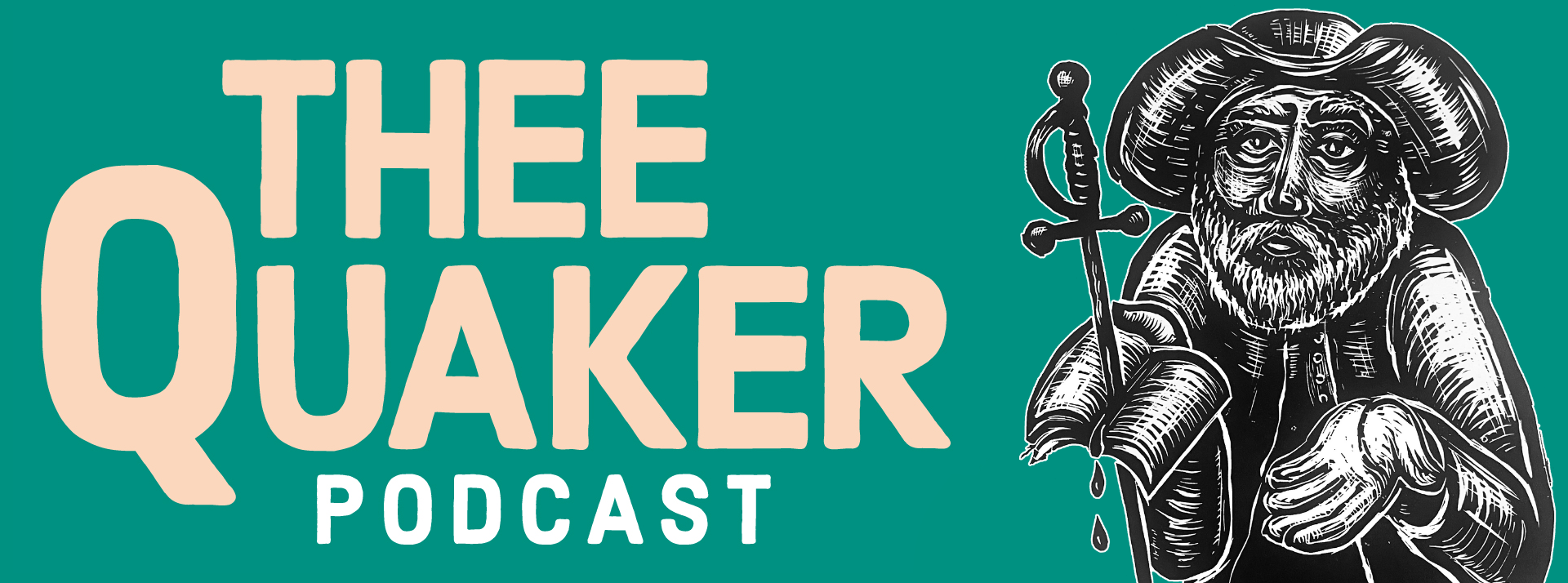

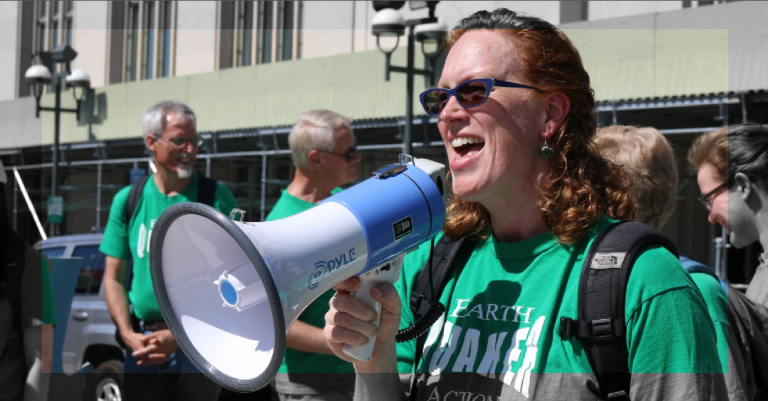
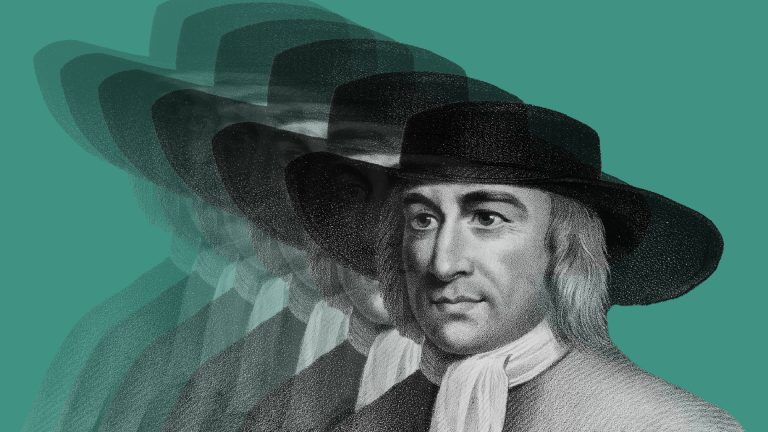
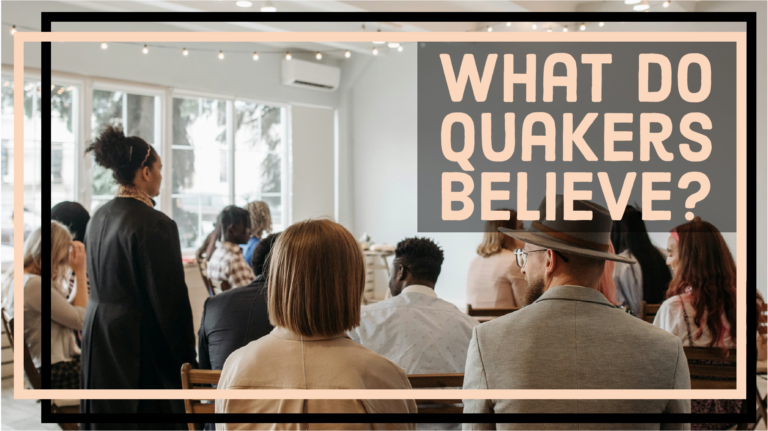
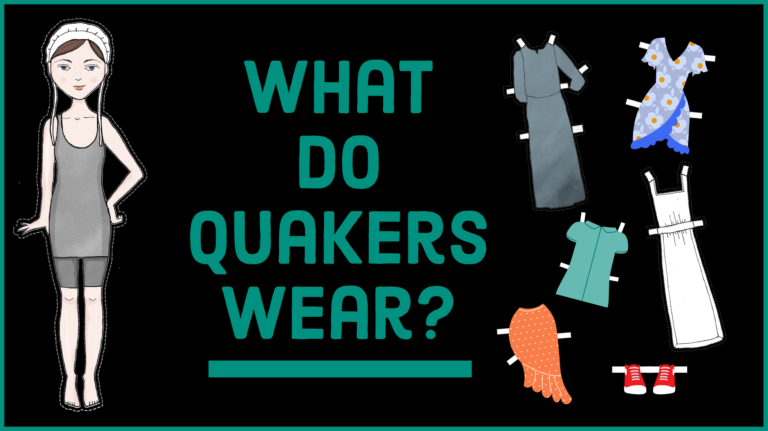
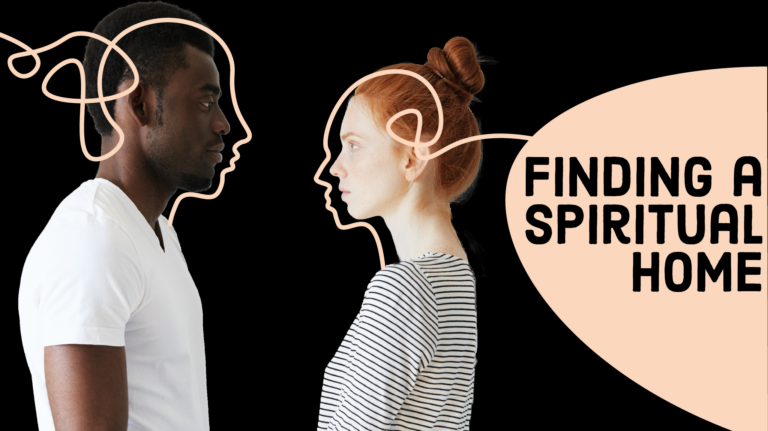

By coincidence I was reading his book on Fox last night
Your addition of Kelly’s quote is as gripping as the whole interview.
I am renewed and encouraged. Immersed in the commons. Imbued with the
new communion and confirmation. Ardent in my desire to be faithful,
and humbly favored with God’s ever new direction and leadings.
A deep thanks for your stewardship Jon.
Your work is transfiguring.
+
Nancy Bowker
https://www.instagram.com/nbcrossings/?hl=en